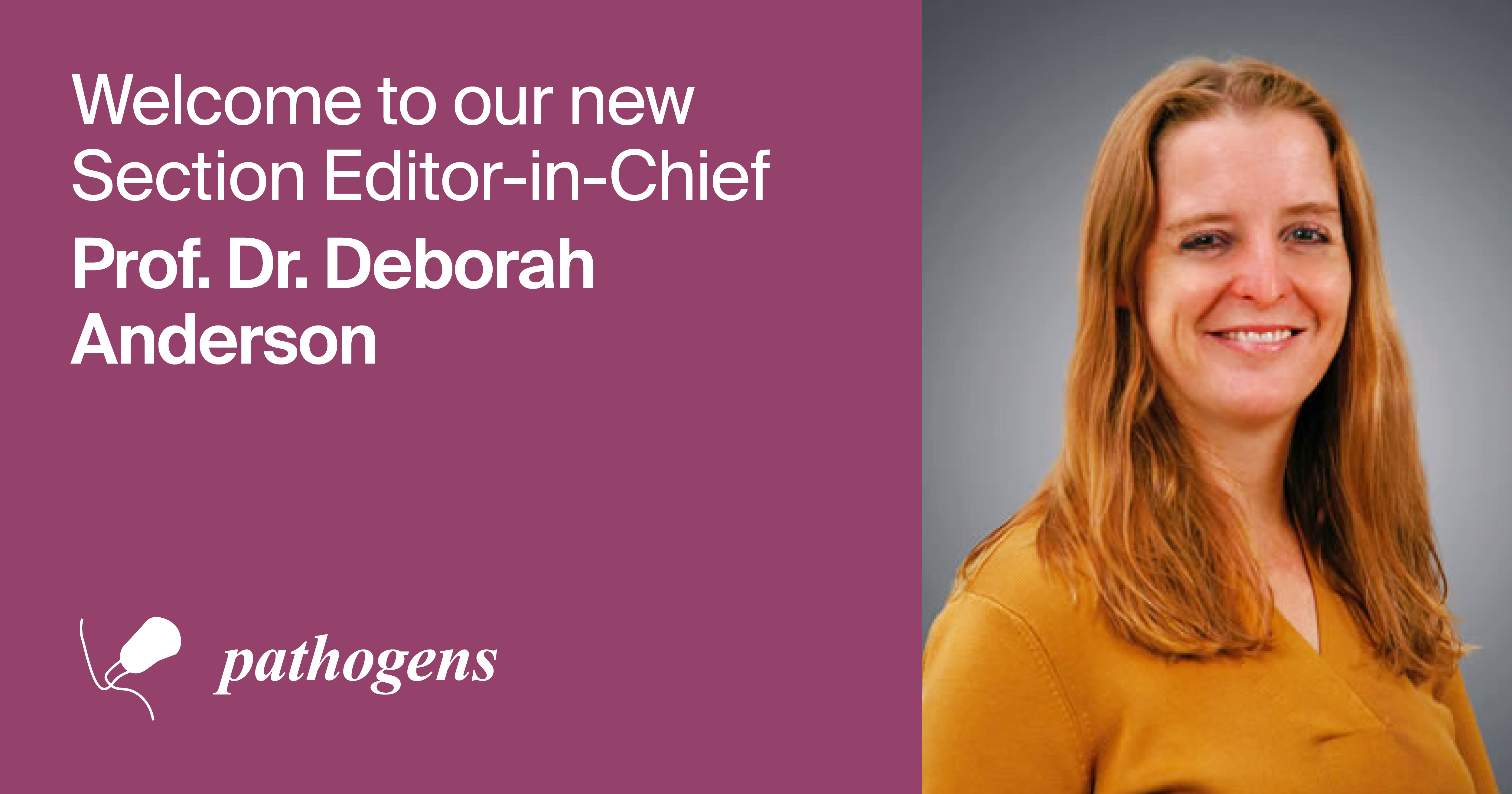
Prof. Dr. Deborah M. Anderson Appointed Section Editor-in-Chief of Section “Bacterial Pathogens” in Pathogens
We are pleased to announce that Prof. Dr. Deborah M. Anderson has been appointed Section Editor-in-Chief of the Section “Bacterial Pathogens” in Pathogens (ISSN: 2076-0817). With her extensive background in scientific research and publishing, she will bring a wealth of knowledge and expertise to this prestigious role.
Prof. Dr. Deborah M. Anderson from the University of Missouri holds a Ph.D. in microbiology and immunology. For many years, she has been sharing her expertise with the next generation of scientists through courses on “Bacterial Pathogenesis” and “Veterinary Bacteriology”, where she imparts knowledge on the intricate details of microbial pathogenesis.
Prof. Dr. Anderson has been working on various aspects of bacterial pathogens, particularly Yersinia pestis, the causative agent of plague. Her research interests include understanding the host–pathogen interactions involving virulence factors that contribute to the extreme virulence of Yersinia pestis, its transmission to the flea vector, and the persistence of the plague worldwide. Her recent publications include groundbreaking research on the transmission of Yersinia pestis, the pathogenicity and virulence of Yersinia, and the molecular and immune responses of ticks to bacterial challenges. Her work on the development of novel therapeutic approaches against pneumonic plague and the understanding of the interplay between environmental factors and the sylvatic plague cycle among prairie dogs has been particularly notable.
With a dedication to advancing the field of bacterial pathogenesis, Prof. Dr. Anderson continues to make significant contributions to the understanding and control of bacterial diseases. Her research has been published in numerous peer-reviewed journals, and she is a sought-after collaborator and mentor in the scientific community.
The following is a short Q&A with Prof. Dr. Deborah M. Anderson, who shared her vision for the journal with us, as well as her views on the research area and open access publishing:
1. What appealed to you about the journal that made you want to take on the role of its Section Editor-in-Chief?
I appreciate the scope of the “Bacterial Pathogens” Section, with a broad spectrum of topics and microbial species and submissions that range from clinical microbiology and infectious diseases to basic mechanisms of pathogenesis, transmission, host response, and antibiotic resistance. In addition, the Special Issues allow for the journal to highlight exciting areas of bacteriology research.
2. What is your vision for the journal?
To increase our submission volume and maintain a commitment to accepting high-quality science that serves the broad interests of the microbiology community. The open access format and timely Special Issues will ensure broad accessibility and a global impact in microbiology.
3. What does the future of this field of research look like?
Microbiology affects all aspects of life and evolves according to abiotic and biotic factors such as global climate change and human and animal behavior. The future of the bacterial pathogens field will address the evolution of virulence, antibiotic resistance, and host susceptibility, considering microbial interactions within the host and environment. In the age of -omics technologies, we can address how microbial adaptations and communities influence the emergence and reemergence of pathogens that threaten human and animal health in order to identify new approaches for the prevention and treatment of infectious diseases.
4. What do you think of the development of Open Access in the publishing field?
Open Access facilitates inclusion and the sharing of information, allowing for a broader impact.
We warmly welcome Prof. Dr. Deborah M. Anderson as the Section Editor-in-Chief of the Section “Bacterial Pathogens”, and we look forward to achieving many milestones under her leadership.
